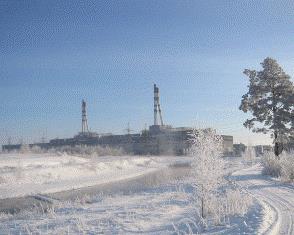The European Court of Auditors (ECA) has called for a more "effective, efficient and economical" use of financial contributions from the European Union (EU) towards the decommissioning of power reactors in Bulgaria, Lithuania and Slovakia.
 |
| The shut down Ignalina plant |
As part of their accession agreements to become members of the EU, the three countries agreed to the early closure and subsequent decommissioning of eight Soviet-era "non-upgradeable" reactors. These comprised units 1 to 4 at Bulgaria's Kozloduy plant; units 1 and 2 at the Ignalina plant in Lithuania; and units 1 and 2 at Slovakia's Bohunice V1 plant. These were shutdown between 2002 and 2009. In return, the EU agreed to provide financial contributions to the three countries to compensate for the "exceptional social, economic and financial burden" of meeting this demand.
Between 1999 and 2013, the EU has pledged to provide financial assistance totalling €2.85 billion ($3.77 billion) to Bulgaria, Lithuania and Slovakia. This is broken down as €870 million ($1.15 billion) towards decommissioning the Kozloduy plant, €1.37 billion ($1.81 billion) for the Ignalina plant and €613 million ($812 million) for decommissioning the Bohunice units. As of the end of 2010, the European Commission (EC) had committed €2.07 billion ($2.74 billion), representing over 70% of the total contributions. Most of the funds have been managed by the European Bank for Reconstruction and Development.
The ECA has now completed an assessment of the effectiveness of the EU-funded programs in contributing towards the decommissioning of power reactors and addressing the consequences of their early closure.
The court concluded that "as a result of a relatively loose policy framework, the programs do not benefit from a comprehensive needs assessment, prioritization, the setting of specific objectives and results to be achieved." It added, "Responsibilities are diffused, in particular with regard to monitoring and the achievement of program objectives as a whole." The ECA also found that there is no comprehensive assessment concerning the progress of the decommissioning and mitigation process, while delays and cost overruns were noted for key decommissioning infrastructure projects.
"As a result of a relatively loose policy framework, the programs do not benefit from a comprehensive needs assessment, prioritization, the setting of specific objectives and results to be achieved."
European Court of Auditors
Furthermore, the ECA determined that the currently available funds (including the EU contribution) will be insufficient to meet the latest cost estimate of €5.32 billion ($7.05 billion) for decommissioning the plants and there would be a "significant" funding shortfall of some €2.5 billion ($3.3 billion).
The court recommends that the EC "should put in place the conditions for an effective, efficient and economical use" of EU funds. It should also "establish a detailed needs assessment showing the progress of the programs so far, the activities still to be performed and an overall financing plan identifying the funding sources."
The EC has proposed providing further financial assistance to the three countries in the next multi-annual financial framework. However, the ECA suggests, "Before further spending takes place, the Commission should analyse the resources available and the expected benefits." If the EU does decide to make further contributions, the court recommends that these "should be made conditional upon an ex-ante evaluation of the EU added value of such intervention, identifying the specific activities to be financed through the EU budget and taking account of other funding activities."
The court noted that while important milestones have already been reached in decommissioning the Kozloduy, Ignalina and Bohunice plants, "the main process is still ahead of us." It also said that the programs have "not yet triggered the required organizational changes to allow the operators to turn into effective decommissioning organizations."
Researched and written
by World Nuclear News





_55401.png)
_23009.jpg)







